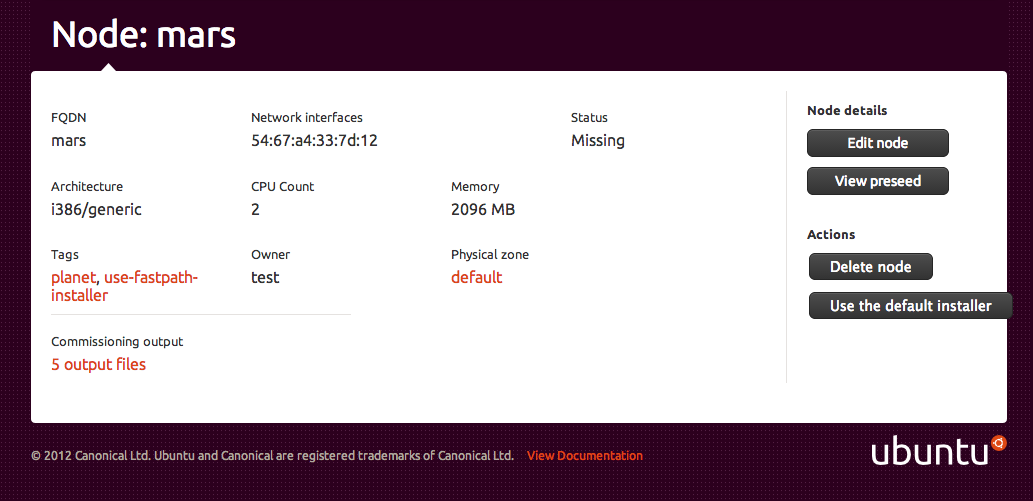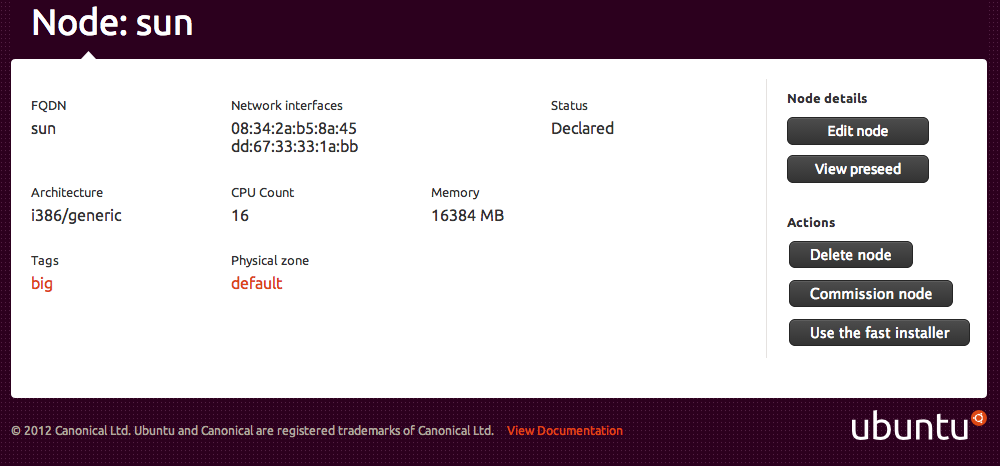Installing Ubuntu and deploying nodes繞
Once a node has been accepted into MAAS and is ready for use, users can deploy services to that node.
Prior to deployment, MAAS is responsible for:
- Powering up the node.
- Installing Ubuntu on the node.
- Installing the user’s SSH keys on the node.
Once these steps have been completed, the node is ready to have services deployed to it, either manually or by using a tool like Juju.
There are two ways to install Ubuntu on a node:
The Debian Installer繞
The Debian Installer installs Ubuntu on a node in exactly the same way as you would install it manually: using the Debian Installer. Answers to the questions asked by the installer are provided in a ‘preseed’ file. For more information on preseed files, see the Additional Configuration page.
The Debian installer is not enabled by default. To enable it for a node that’s been configured to use the fast installer, visit the node’s page as an administrator and click the Use the Debian installer button.

To set multiple nodes to use the Debian installer, select the Mark nodes as using the Debian installer option from the bulk action menu on the Nodes page in the MAAS web UI.
Because it installs Ubuntu from scratch, downloading packages as required, the Debian installer is slower than the fast installer.
The fast installer繞
The fast installer is, as the name suggests, a means of installing Ubuntu on a node more quickly than would be possible using the Debian installer.
The fast installer is enabled by default for newly enlisted nodes.

To set multiple nodes to use the fast installer, select the Mark nodes as using the fast installer option from the bulk action menu on the Nodes page in the MAAS web UI.
The fast installer copies a pre-built Ubuntu image to the node, with all the packages installed that would be normally found in an Ubuntu installation.
The fast installer is much quicker than the Debian installer, but has the disadvantage that it’s less easy to configure a node at install time, since the fast installer doesn’t use a preseed file. In addition, the packages that are initially installed on a fast-installed node need updating manually, since they are part of the installation image and not downloaded fresh from an apt repository.
For more information about the fast installer, see the curtin project on Launchpad.
